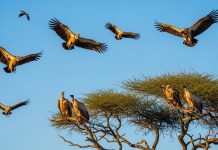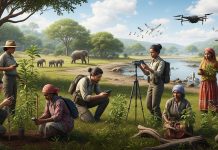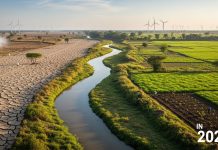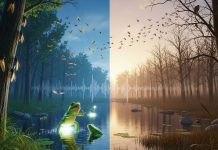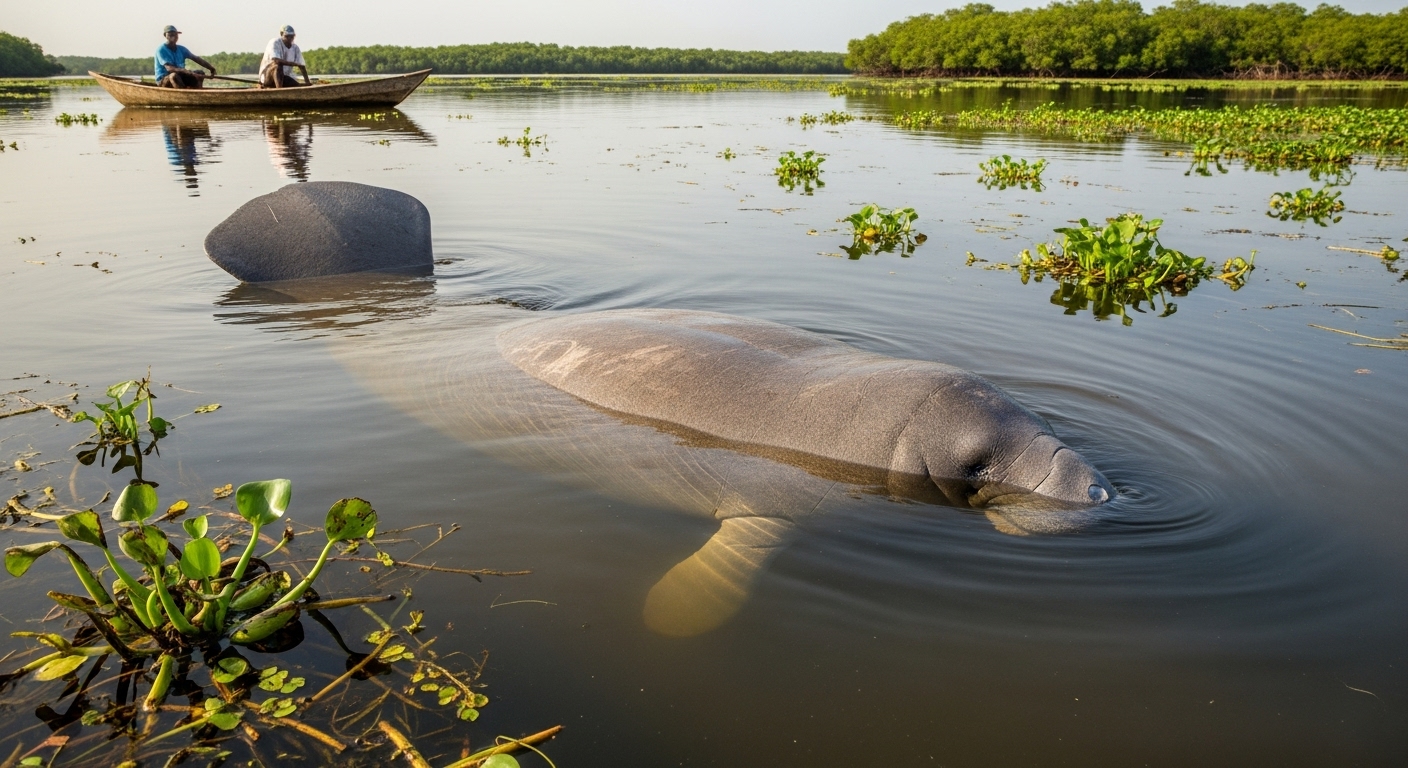If you’ve ever taken a boat ride around the Niger Delta or the Lagos Lagoon, you may have heard whispers about a shy, slow-moving creature that gently rises to the surface now and then. That’s the African manatee, one of the quietest and least-known animals in Nigeria. Often called “sea cows” because they munch on water plants, these gentle giants help keep our rivers clean and healthy.
Even though they can grow over 13 feet long and weigh more than 1,000 pounds, manatees are peaceful and calm. They don’t chase fish or cause trouble. Instead, they float quietly through rivers and lagoons, eating plants like water hyacinths and sea grass. It’s this gentle nature that makes them special and sadly, easy to harm.
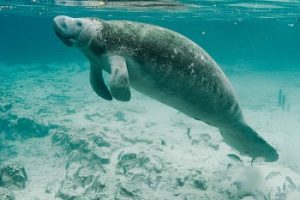
A Secret Treasure in Our Rivers
Manatees are found in a few special locations in Nigeria, including the Niger Delta, Cross River, and Lagos Lagoon. They’re hard to spot, but people living near the water sometimes catch a glimpse of them early in the morning or late at night. Some communities report seeing manatees more frequently now, which is a positive sign that efforts to protect them are having an impact.
If you ever see one, you’ll notice their round, almost cartoon-like face and big, paddle-shaped tail. They resemble water-dwelling teddy bears. In some areas, manatees are even linked to old stories about “mami wata”, the water spirits of local folklore.
Why They’re in Trouble
Sadly, the African manatee is in danger of extinction. It’s listed as a vulnerable species, and its numbers are dropping. One big problem is illegal hunting. Some people still kill manatees for their meat or oil. Others get caught in fishing nets or lose their homes when mangroves are cleared or buildings go up near the water.
In places like the Niger Delta, oil spills and pollution also mess up the water and food sources. Add climate change to the mix, with rising temperatures and unpredictable water levels, and life becomes even harder for these gentle animals.
How People Are Helping
The good news is, Nigerians are taking action. Conservation groups are working closely with local river communities to protect manatee homes. In some places, locals are even learning how to track and monitor manatees, which helps researchers better understand how to protect them.
The government is stepping up, cracking down on poachers and seizing manatee products. In some areas, mangrove forests are being restored, giving manatees safe places to feed and rest.
And now, eco-tours are being introduced in places like Cross River. These tours allow people to see manatees in the wild without disturbing them, which helps build awareness and supports local economies.
Why It Matters to You
You might wonder: “Why should I care about this slow animal?” Manatees help control invasive plants, such as water hyacinths. This helps keep rivers healthy, benefiting fish, birds, and even local fishermen.
What You Can Do
You don’t have to be a scientist to help. You can:
- Support local conservation groups
- Talk to others about why manatees and wetlands matter
- Avoid dumping waste near rivers and lagoons.
- Report illegal hunting or pollution when you see it.
The African manatee may not roar or run fast, but it has a quiet power. And with your help, these gentle river giants can keep swimming free, not just today, but for generations to come.


